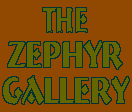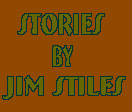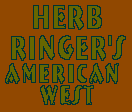

TRESSPASS
Red canyon walls ended abruptly. I stepped over sagging barbed wire into aspens and cottonwoods and came to a house in a clearing and a new corral made of freshly milled planks set on squared-off posts that had been treated with pentachlorophenol. A sorrel and two bays stood in the hot stink of the penta, looking me over. A raggedy, newly-planted lawn glowed like fresh paint on mud. An irrigation ditch diverted some of the canyon's lively creek to a hay field where a man was working with a shovel, irrigating. At the fence near him, a small motorbike.
I stopped in aspen shade for a while, ate a sandwich, went down the driveway to the county road. The irrigator noticed me, hurried to his bike and fired it up. We met at my pickup where he accused me of sneaking onto his place and then hiding. I explained that it had been necessary to cross his property line in order to ask permission to cross. Funny, eh?
No, not funny. He lectured me. Maybe it was different back east...he'd noticed my New York plates...but out here in the west, property rights are taken seriously. I told him Wyoming was my home state and I understood all of that very well.
He as much as called me a liar, then cooled a bit, shifted his anger to hunters, complained about the never-ending task of defending a small, private holding in a sea of public (Bureau of Land Management) land. We settled down to ordinary talk. I learned that the winter had been late in leaving, had been followed by drought; the alfalfa would be hardly worth cutting; too late to do much about that, not enough time for anything; life a constant commuting between town work that produced the real revenue, and the ranch. His wife held down a regular job too, and had her own pet project that took up too much of her time.
I drove away feeling sad. This couple, I wanted them to be getting a grand kick out of their privileged place. I wanted to imagine them saddling horses for a ride into wild mountains or rough desert. I wanted them to show off the place to friends, or even a casual drop-in. Tree shade and sounds of dashing water, aromas of cottonwood and aspen and sage, moon rising over redrock canyon. Get rid of those penta posts, quit trying to make a lawn in the desert. Enjoy!
Another day, another cattle range, the ranch house vacant, no one to ask for permission. I walked along the fenceline, trying to identify sparrow-like birds that were using fence posts as launching pads for forays against aerial insects. Returning, I met the rancher and confessed to trespass and birdwatching. Showing not the slightest resentment, or interest, he went into standard spiel against government and environmentalists. And prairie dogs, who were the ones responsible for overgrazing the range. I learned that he lived somewhere else, spent the winter in the sunbelt. Whether owner or renter, that rancher's identification with the land was minimal and his rant wasn't doing him much good.
Hey, is anybody happy out there? Anybody at home on the range?
Some public lands are hard to get to, sometimes impossible unless you cross private holdings. I look at those places longingly, sometimes I cross.
One July day, west of Independence Rock, I decided to not use up time finding a ranch headquarters for access permission, because the sun was way past noon. Not a good idea to get caught in strange terrain after dark. I walked a mile or so of livestock grazing to cross a broken-down boundary fence. The country rose, opening reluctantly. Brush, thick and tall, grew from niches in a style of rock outcrop that was monumental and unfamiliar. A few trees reared upward and outward from deep crevices. I found a stain of water on sun-glazed rock, and a pool that gathered that water in a slow faint dripping and that pool fed into another, partly shaded by rock overhang. The banks of those little oases were only inches wide, covered thickly by mosses and low plants I didn't know the names of.
I stayed for a while in water sounds so faint as to seem almost imagined. That's one kind of concentration. Another is the choosing of the next stretch of travel. Sometimes you get it wrong and backtrack and judge again. This way and that, you gain, maybe reach a summit ridge, maybe not. You find things, an animal trace to puzzle over, a stone whose shape or color makes you stop and pick it up, a weather-carved view across miles of rock upheavals and dry plains. Travelling like that is addictive. Is it acceptable, then, to take whatever means possible to satisfy the need? No, not if trespass means trashing your way through somebodyís crop, or antagonizing their animals. Don't even ask the question, back off. Each situation is different. All Iím saying is that "No Trespass," or "Private Property" does not always end speculation.
One time, remembering grand sweeps of privately held prairie lands in Chase County, Kansas, I wrote that trespassing was my favorite way of travel. That was a bit of a stretch, careless writing; I wanted to toss a dart against bone deep reverence we're all supposed to feel toward property and its rites of fee simple and lawyerly priestliness. Timber beasts and real estate barons use that reverence in their backlash against those of us who work to make enough habitat space for all of us beings, human and the others. I thought, and still think, that one of the big problems begging for solution is the problem of curvaceous lines of ecological domains vs the rectilinear lines of human priority. Various evasions of the Endangered Species Act...well documented...are interesting models of how those straight lines trump habitats of not only lowly snails and darters, but more respectable beings like lynxes, wild horses, wolves, grizzlies, eagles.
I once thought the solution was simple: abolish private property, hold everything in common. That was youthful enthusiasm grabbing grand abstractions, evading realities of my particular, somewhat peculiar, homeland, these United States of America.
Reality, then, let's grab a handful. At one extreme families work and live on small land holdings...there are still some of those...and at the other extreme absentee zillionaires use land as a counter in big corporate games, or for tax dodge, trophy home, high-end recreation. Presidents and vice presidents play those games too. We're all obsessed with possessions, because that happens to be the way things are organized, in these times and on this continent. The more you possess in the way of objects or land or animals or money, the greater your prestige and security and the good things a measure of security offers you and yours. The American Way, a distinctive culture, enfolds that obsession. We're all in on it. No one of us is free of it.
I remember an afternoon during what we now call "the first Gulf War," a few families gathered for food and sociability, one of the conversations turning to state intervention in land management, a landowner ranting, "I'm not about to let anybody tell me what I can do on my own land." About an hour later he and a friend, shotguns in hand, went rabbit hunting, with a parting thought for the rest of us: "Maybe we'll shoot an Iraqi."
I'm not saying that those two attitudes are directly connected, but I do think they signify two American character traits in these 21st century times: private ownership whose flip side is disdain for public responsibility, and a simple-minded nationalism that can't help but see other people in other lands like Iraq or Serbia or Korea as outsiders not blessed as we are with God's special attention.
Wendell Berry, an experienced and sensitive defender of private ownership, promotes "authentic cultural adaptation to local homelands." He believes that secure title to a patch of earth can nurture that authenticity, along with a sense of stewardship. But, he says, the human character also needs wilderness (e. g. an unused woodlot) to create "a practical deference toward things greater than itself." He calls this a "religious deference," ("Another Turn of the Crank," /Counterpoint,/ 1995).
Question: Must every human outreach beyond self be tagged "religious"? Answer: No, religious loses authenticity when stretched that far.
Deference? Trouble there too, the word gives off a whiff of patriarchal condescension toward nature, an outsider's gesture.
Berry writes as an "uneasy believer in the right of private property," holding that therein lies hope for "intimacy in the use of the land." Is he implying that ownership is the only way toward intimacy with habitats? I hope not. Intimacy dwells in many places. Consider a farm worker tending grapes, apples, stawberries on someone else's land; or a herder from Peru in the mountains of Nevada with someone else's sheep; or a communications tech, diagnosing, repairing and modifying corporate-owned poles, cables, wires, terminals. These jobs are steady presences, intense dwellings on stubborn earth under changeable sky. Not that workers notice everything or even mull over every aspect of what happens, but owners don't do that either; they can't, being merely human. I hope that somewhere in his writings Berry acknowledges that a lifetime of authenticity can't take account of all that is there, and all that has been.
Nature lovers, what about us and our pride in paying careful attention, noticing every little thing? Let's admit that we too move in limited awareness. Every species has its own abilities, and its own lacks, blind spots. No one has the big picture. No one can even say for sure that there is one big picture.
Luckily, human experiences tend to overlap; we are one species, after all; we can compare notes. Bruce Patterson, a former logger in redwood country, speaks to that:
"Maybe the environmental activist who could best share a campfire with an old time redwood logger would be young Julia Butterfly. If spending two years perched in a redwood tree has made Ms. Butterfly a bit crazy then the old timer could sympathize with that. And whatever tales she could tell of having witnessed 'magic' in the woods the old timer could match with stories of his own." (/Anderson Valley Advertiser/, 49/10).
And here's a different kind of overlap, trespass by beings other than human:
"Because if you let the overall range of the spotted owl tell you where and on what kind of lands it could be found, or has historically been found, it covers private, corporate, state, county, and federal lands. And I would like to think of being able to provide for a species ...across different land ownerships and then guide the ownership goals such that they become one key focal goal." Bruce Maricot, biologist, quoted in Steven Yaffee, "The Wisdom of the Spotted Owl," Island Press, 1994.
These thoughts are not only things to contemplate, they offer ways to look beyond local and private worlds, to take seriously the other spirits and know-hows out there, and maybe, just maybe, build an alternative, a force of authority. I am choosing words with care. By "authority" I mean grassroots democratic majority that gathers authenticity only by sharing of views, taking account of diversity and disagreement. By "force" I mean prevalence against tyranny. A march in Washington, D.C. is a force. So is a union standing tall for its rights, or a spirited election campaign, even a voice crying in the wilderness listening for another.
In my small town we kids visited the back yards of saloons, and searched under their board sidewalks to collect beer bottle caps. We visited the same saloons to gather whiskey and beer bottles to stock backyard spreads we called "bottle horse ranches." Whiskey flasks were the cattle, beer bottles the horses. We reveled in possession. And we wandered fields and meadows and mountains, knowing whose buck fence or barbed wire we climbed over or ducked under. There were times when we damaged someone's oats or hay or barley, or tangled with their dogs or horses or cattle, and got called down for it, learning at first hand about property rights. But there was that other right, the roaming right. Last year I talked with someone from those times. He reported that the big willow patch behind the old Skaggs grocery had been obliterated, replaced by upscale tourist traps. He has gained a calm acceptance, seems to be satisfied by nostalgia. I'm not.
Big outfits taking charge of homelands, happens all the time, trespass on a grand scale. Is that the way it's going to be? Peter Matthiessen, in his new book, /the Birds of Heaven/, claims to see a change. "The corporate world that dictates policies to the Western governments appears to be coming to its senses."
Sorry, that's a wrong reading of the scene. Remember that single-hulled tanker that went down off the coast of Spain, various ownerships involved, not one of them claiming responsibility? Do you see Anaconda and its offspring moving bigtime into Butte, Montana to do something about that toxic lake, formerly the biggest open pit copper mine in the world? In Navaho country is someone from the corporate world taking a decisive lead in safe disposal of radioactive waste? No, the corporate mentality coming to its senses would mean opting out of its role in the imperial reach of our country. They're not about to do that, they've been in charge for generations; too late now, retreat is out of the question. Rescue will have to come from elsewhere. Where's that? From the world's other superpower, the people.
Yes, I know, "the people" has been out of favor for quite some time, condemned on three counts, sentimentality, naivete, romanticism. And I know it tends to make some people grit teeth and growl. But there is a question that won't go away: where else is the countervailing power?
A little south by east of a certain sweep of western terrain there's a rugged valley bottom that you have to cross to reach federal (public) land. The place is overgrazed, cattle dominate, but the cattle there are Longhorns, wild critters who are prone to get up quickly and gather and stare with very thoughtful interest and then take off for higher ground in long-legged lopes. Those rangy critters have a certain style, even standing still, that sets them dramatically apart from other breeds, the stolid, beef-bound Herefords, Angus and the like. But wait, these are matters of body shape and manner and too easy to get off on a narrow track. Let me explain.
East of that longhorn stronghold, in sagebrush highlands, late in the day, I'm looking for a prairie dog town. I come to a gateway with a big sign that names a land-and-cattle corporation. "Violators prosecuted to the full extent..." I drive through, looking for a place where I can ask permission, but there are no headquarters buildings, no home base. Chartered sageland rolls on and on, high rises and deep falls of land. There's a passing into that loneliness you meet in wide open, un-fenced country. I keep driving, needing that dog town. (Found one later, just off I-80). I meet a small herd of cattle, Herefords, blocky and branded, but they're suspicious, been out here a long time on their own. They don't have the dull, seemingly hopeless quietude that takes over in a meat-processing feedlot. They have attitude. They get up and turn to face my pickup. One of them decides to take off, the others follow in that quirky gambol that's all their own, muscle action moving their hides that glow in sunset color, the sage in front of them seemingly endless, ownerships slipping away.
Once in a while I find boot tracks in snow or mud at the back end of "the property." I follow and get a sense of where they come from and where they're headed. Once the tracks were of a moose, a rare trespass. Sometimes fishers pass through, and coyotes and foxes. They live by scent and sight, hearing and touch, nerve and muscle.







